anti-work
description: ethical theory and social movement that advocates for the abolition of paid work as a central aspect of society
21 results
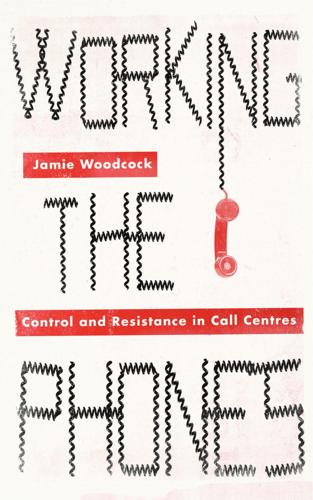
Working the Phones: Control and Resistance in Call Centres
by
Jamie Woodcock
Published 20 Nov 2016
By giving up on the question of control of the labour process and instead limiting themselves to defensive campaigns, trade unions have failed to relate to the anger and resistance at a workplace level. They do, however, remain organisations in which arguments can be posed and organisational initiatives tried out – at least to some degree. anti-work In the context of ‘bullshit jobs’, it becomes important to understand the tendency toward the rejection of work. The theoretical basis of the anti-work perspective can be traced back to the Cuban Marxist Paul Lafargue. In a pamphlet, The Right to Be Lazy published in 1880, he argues that the proletariat, the great class embracing all the producers of civilized nations, the class which in freeing itself will free humanity from servile toil and will make of the human animal a free being, – the proletariat, betraying its instincts, despising its historic mission, has let itself be perverted by the dogma 144 Precarious Organisation of work.
…
He expands this by applying it to ‘the transition to post-Fordist empire’, arguing that it ‘marks a renewed intensification and generalization of plantation-era processes by which capital attempted to impose work – a generalization and intensification that is negated through its refusal’.76 Taylor also argues – and it is important to reiterate this here – ‘while labor in a plantation society and labor in Fordist society are qualitatively different, the plantation and the factory are both constituted through an antagonistic dialectic, pitting a workforce striving for “universality” against the regime of labor in capitalism’.77 The opposition of the anti-work perspective to orthodox Marxism is a historical peculiarity. Marx himself studied the ‘antagonistic social dynamics of postemancipation Jamaica’ and ‘would develop a robust antiwork perspective in the Grundrisse’.78 While Negri’s perspective was developed through a close reading of the Grundrisse, the figure of the slave remains absent in his anti-work politics. For Marx, the free slaves became the active subjects of two refusals: refusing slavery and then refusing wage labour.79 Freed from the direct, forced exploitation of slavery they are unwilling to submit to indirect modes of exploitation.
…
For Marx, the free slaves became the active subjects of two refusals: refusing slavery and then refusing wage labour.79 Freed from the direct, forced exploitation of slavery they are unwilling to submit to indirect modes of exploitation. This experience in the Caribbean is the starting point for Marx’s notion of anti-work, although he did not develop this in the same way as did either Lafargue or James. The anti-work perspective provides a 146 Precarious Organisation critique that is not limited to the question of control of the labour process. In the context of ‘bullshit jobs’ it is possible, as Taylor argues, to go further than ‘moralistic invocations of labor’s value’ that ‘appear grotesquely comical’.80 An ‘Antiwork Marxism’ holds potential in that it encourages us to laugh at this moralism, to take it for the farcical tragedy that it is, and to imagine new forms of life.
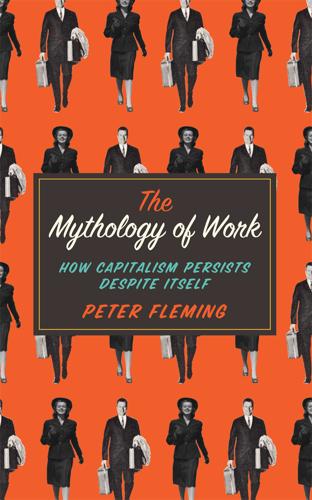
Mythology of Work: How Capitalism Persists Despite Itself
by
Peter Fleming
Published 14 Jun 2015
But workplace informality has a dark side; namely, the potential for authoritarianism to take on a rather sadistic and perverse quality. Informality and power do not go well together. Under such circumstances we are not only paying for the elite’s freedoms, but being callously toyed with to boot. Hence Jez’s rancour. And herein lies the problem with anti-work arguments that evoke Parkinson’s Law. The idea behind the law is simple. If we are given eight hours to perform a task, it usually takes eight hours to do so successfully. If we are only given three hours to do the same task, it typically takes three hours to do so successfully. Therefore, we could spend much less time on the job whilst maintaining the same level of productivity achieved by the 40-hour work week.
…
Rationalization is thus a question of perspective or standpoint rather than numerical formulation, and that standpoint is completely determined by class politics. The ‘waste’ that managerialism so meticulously identifies is often simply our freedom to act in concert to achieve self-determined ends. Or, our freedom to do nothing (although it should be remembered that, unlike Bertrand Russell, most successful anti-work advocates hate ‘doing nothing’ per se, which is more akin to life in the post-industrial office than anything else). But most importantly, neo-capitalism views the freedoms of worker democracy as the clearest manifestation of wastefulness. Workplace democracy is technocratic capitalism’s greatest fear and enemy for obvious reasons.
…
The customary practice consisted of workers dropping their tools, vacating the factory and getting extremely inebriated on Monday mornings just as the workday was formally beginning. A raft of disciplinary measures was hurled at the working class to stamp out this reverential tribute to Saint Monday. The anti-work connotations of boozing on the job continued through the Fordist period under Western capitalism. For employees, drinking was not only a moment of escape, but also a sign of triumphant insubordination in the face of sobering discipline, as epitomized by Hamper (1992) in his tale about working on the line at General Motors.

Marx at the Arcade: Consoles, Controllers, and Class Struggle
by
Jamie Woodcock
Published 17 Jun 2019
Interestingly, in a survey by Forbes, 69 percent of users of Pokémon GO said they played the game while at work, indicating the level of boredom many of us face at work in our daily lives.35 While playing Pokémon GO at work is not going to change the world, the anti-work appropriation of gamification on workers’ terms should be celebrated. The widespread adoption of smart-phones has meant that many workers have found ways to access videogames away from the electronic supervision of their work computer. Pokémon GO was clearly able to capitalize on this anti-work sentiment, as the augmented reality (AR) mobile game was downloaded over 100 million times on Google Play and generated $200 million in sales. Nintendo’s share price initially soared.
…
Companies like Atari promised “play as work” as an alternative to the restrictive conditions of industrial or office-based Fordism. This was an early innovation of the “work hard, play hard” workplace culture that would become so influential in Silicon Valley. However, the company later sold out to the decidedly non–anti-work Warner Communications.43 Around the same time, in 1973, David Ahl published 101 BASIC Computer Games, which included code for the games Chomp, a two-player strategy game; Hexapawn, a smaller pawn-only chess game; Hamurabi, a text-based resource management game; Nim, discussed earlier; and Super Star Trek, a very popular text-based game where the player commands the USS Enterprise.
…
That same code traveled a far way to the staircase of my family friend’s home so that I could play the game. Another successful puzzle game, Solitaire, was bundled with Windows 3.0 on the PC in 1990, leading to millions of new players, many of whom may have never played on consoles. In offices across the world, people found a new outlet for anti-work boredom. While consoles were becoming popular household items, this computer product reached an entirely new audience. The next stage of the competition between Sega and Nintendo began with the launch of the Mega Drive / Genesis, featuring Sonic the Hedgehog. The console went on to sell 30 million units.65 This was followed by the Super Nintendo Entertainment System (SNES), which sold almost 50 million units.66 This, too, has been refreshed in the recently released (and now very wordy) Nintendo Classic Mini Super Nintendo Entertainment System, which allows nostalgic players to play classic 16-bit games like Star Fox 2, F-Zero, Street Fighter II Turbo, Super Mario World, Super Mario Kart, and The Legend of Zelda: A Link to the Past on modern flat-screen TVs.
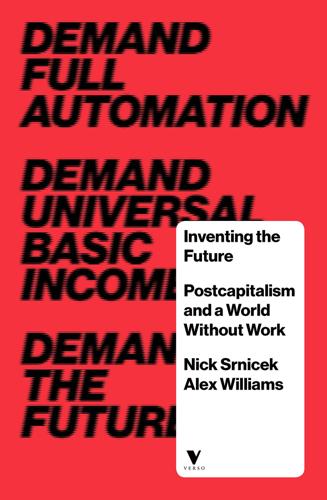
Inventing the Future: Postcapitalism and a World Without Work
by
Nick Srnicek
and
Alex Williams
Published 1 Oct 2015
The difference between a populist movement and folk-political approaches lies in this stance towards differences: whereas the former seeks to build a common language and project, the latter prefers differences to express themselves as differences and to avoid any universalising function. The mobilisation of a populist movement around anti-work politics would require articulating a populism in such a way that a variety of struggles for social justice and human emancipation could see their interests being expressed in the movement. Importantly, anti-work politics provides such resources: for example, it is perhaps the best option for a red-green coalition, insofar as it overcomes the tensions between an economic programme of jobs and growth and an environmental programme of decreased carbon emissions.
…
Demands form a key medium for building unity, and must therefore connect in multiple ways with different people.27 Such demands do not presume to know in advance who will be called into action by them, but they allow people to see their own particular interests within them while nevertheless maintaining their differences from each other.28 For example, the demands of an anti-work politics have different meanings for a university student, a single mother, an industrial worker, and those outside the labour force; but in spite of these differences, each of them can find their own interests represented in the call for a post-work society. Mobilising these people together and under the name of a demand then becomes the work of on-the-ground politics.
…
This can only be highly schematic, given the particularities of any given struggle and the complexity of the issues at hand. Inevitably, an ecosystem of organisations is forged in specific circumstances, with different decisions being made in the face of different political contexts. That said, a broad social movement would be essential to any anti-work politics, affording a wide range of different organisational and tactical compositions. At one end of the spectrum, there are transient bursts of political energy, in the form of riots and spontaneous protests. Urban unrest in America, for instance, was a key motivating factor behind elite support for a basic income in the 1960s.39 Such eruptions may not make intricate demands, but they demand a response.
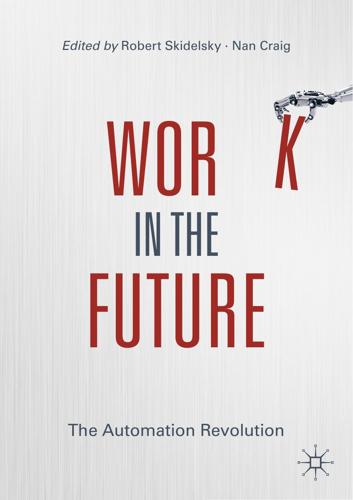
Work in the Future The Automation Revolution-Palgrave MacMillan (2019)
by
Robert Skidelsky Nan Craig
Published 15 Mar 2020
It is possible to reconcile the idea that humans need purposeful work (and sometimes even structured obligations) with the idea that fewer jobs could be desirable, as long as we acknowledge that life is full of unpaid obligations. 8 Work as an Obligation 79 If we pull back from distant-future utopias and address the here-and- now instead, anti-work arguments are a reasonable corrective to our excessive valorisation of work. Feminist anti-work arguments (for instance in Kathi Week’s The Problem with Work6) are particularly strong, contradicting the liberal-feminist and Marxist-feminist assumption that full- time paid work is unequivocally a good thing for women. The full entry of women into the job market has been achieved with no systematic provision at all for reassigning all the non-paid work they had previously done.

Make Your Own Job: How the Entrepreneurial Work Ethic Exhausted America
by
Erik Baker
Published 13 Jan 2025
“They’re running Depop businesses, becoming party photographers, doing DJ streams on Twitch,” and consequently not climbing the corporate ladder to achieve (girl)bossdom.48 The entrepreneurial work ethic celebrates the charismatic executive and the small-time hustler alike, but it can be challenging to strike an ideologically acceptable balance: when times are tough, articulations of entrepreneurialism that focus too heavily on the bosses can find themselves displaced by rivals that instead celebrate the hardscrabble grinders. For this reason, we can find the idea of entrepreneurship as resistance to work-as-usual gaining steam even before the pandemic, as disillusionment with the economic status quo became ever more commonplace in the twenty-first century. One of the bestselling anti-work writers of recent decades, the British writer Tom Hodgkinson, devoted his 2018 book Business for Bohemians to the subject of entrepreneurship, which was, he argued, a pathway to “freedom from the nine-to-five life” perfectly compatible with his “laid-back” philosophy of living. “Whether you dream of launching your own graphic design startup or growing your Etsy store into a full-scale operation in your spare time, Business for Bohemians will equip you with the tools to turn your talents into a profitable and enjoyable business,” the book’s blurb promises.49 It might seem bizarre to find the founder of a publication called The Idler extolling the rewards of entrepreneurship, but the truth is that the entrepreneurial work ethic has always functioned simultaneously as an anti-work ethic—a critique of existing ways of organizing and relating to work.
…
“Whether you dream of launching your own graphic design startup or growing your Etsy store into a full-scale operation in your spare time, Business for Bohemians will equip you with the tools to turn your talents into a profitable and enjoyable business,” the book’s blurb promises.49 It might seem bizarre to find the founder of a publication called The Idler extolling the rewards of entrepreneurship, but the truth is that the entrepreneurial work ethic has always functioned simultaneously as an anti-work ethic—a critique of existing ways of organizing and relating to work. To be entrepreneurial is, at least potentially, not to be industrious, to substitute one’s own personality and creativity for the yoke of tradition or bureaucracy. To make your own job is to refuse the job another might seek to impose on you.
…
Doriot, 107–8; intellectuals, 148; and Koch Industries, 184; and Marilyn Ferguson, 157; theory, 106, 191 entrepreneurial mindset, 3 entrepreneurial psychology, 121 entrepreneurial role behavior, 121 entrepreneurial spirit, 239–40, 248 entrepreneurial uncertainty, 54 entrepreneurial work ethic, 3–6, 8–9, 13–16, 71, 78, 85, 117, 189, 210, 213, 248, 255; advocates of, 258; and anti-poverty policy, 132; and anti-work ethic, 252; and capitalism, 252; creation of, 35, 260; critiques of, 257; durability of, 252–53; and economy, 234; and economic precarity, 93; and economic revitalization, 70; and gig work, 251–52; and Henry Ford, 18, 164; and individual success, 81; and industrious work ethic, 21, 246; and Junior Achievement, 227; and Marcus Garvey, 38, 40; and New Economy, 235; and New Thought, 20–21, 258; and personal development, 92, 164, 220, 222; and positive psychology, 241–42; and proactivity, 244; and racial advancement, 38; and Ralph Flanders, 106; reformulation of, 38; rhetoric of, 133; and routinization, 235; and taxi drivers, 260; and technology, 241; and “underclass,” 228; and unionism, 186; and women, 36; and work scarcity, 249–50 entrepreneurs, 3, 117, 126, 175, 182, 193–94, 201, 208, 245–46, 249, 256; and Abraham Maslow, 110, 115; and Amway, 176; and Andrew Kay, 111; Arab, 123; and Arbeitsfreude, 51; and Arizona, 113–14; and autotelic workers, 245; and Barry Goldwater, 113; and Bill Clinton, 224–25; and Bill Gates, 211; Black, 80, 129–30, 222, 226; and capitalism, 121, 159; celebrity, 200; and Chester Barnard, 61; citizen, 142–43; and class, 186; concept of, 6–7; conservative, 164, 183, 203; corporate, 105, 199, 219; counterculture, 154; and COVID–19 pandemic, 251; creative, 65, 151; and David Glass, 172; and David E.
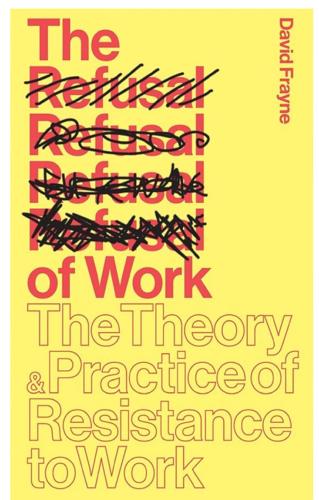
The Refusal of Work: The Theory and Practice of Resistance to Work
by
David Frayne
Published 15 Nov 2015
What is important is that the neo-proletariat were understood by Gorz not as revolutionary political subjects (i.e., they were not a replacement for Marx’s revolutionary proletariat), but as the embodiment of a cultural disillusionment with work that had yet to find collective expression or political purchase. The anti-work sensibilities that he believed were mounting constituted a revolution only in people’s hearts and minds, but whether this supposed disaffection with work would be translated into a genuine social alternative remained to be seen. Today, many who call for a re-evaluation of work remain confident about the existence of a cultural undercurrent in which people are actively questioning the extent to which work is worth their time.
…
She was thinking about training to be a psychotherapist. The important thing for her was that she live with intention: ‘I’m crafting my own life.’ The key point we can take from these accounts of the breakpoint is that, whether people had reduced their hours or given up work altogether, they had not done so according to some kind of crude, anti-work morality, but according to a strongly felt desire to do more. The stories that people told about their jobs show how the desire for resistance can be fuelled by the lack of meaning and autonomy in employment. Functional social roles such as a paid job can never be identical with the complex, fully rounded people who are forced to inhabit them.
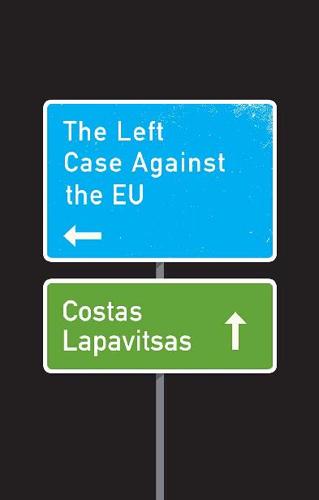
The Left Case Against the EU
by
Costas Lapavitsas
Published 17 Dec 2018
Often this view is coupled with a demand for ‘More Europe’, that is, for stronger integration, or for a push in the direction of federalism, on the assumption that the lurch of the EU in a neoliberal direction was facilitated by the incompleteness of the union.13 From this perspective, the EMU and the EU are considered, at bottom, as arenas in which to fight political struggles. Neoliberal and anti-working-class policies, far from being inherent in the institutional functioning of the EMU and the EU, are seen as merely reflecting the transient balance of class forces in key countries, such as Germany and France. Calls to exit or dissolve the EMU, in this view, would not only be pointless, but could also open a path for siding with right-wing nationalist and authoritarian forces.
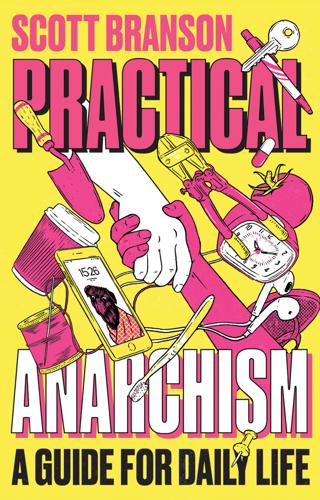
Practical Anarchism: A Guide for Daily Life
by
Scott. Branson
Published 14 Jun 2022
In much liberatory discourse, there is always an emphasis on community, but perhaps this idea of community ends up overemphasizing a kind of connection that often feels unattainable. If we start by saying no, we can learn about saying yes, and thereby form the relationships and webs of care that can actually sustain us. Chapter 3 asks us to disidentify from the moralism of work, to reject competition and thinking our identity is bound with our jobs. Anarchism is anti-work, as a relationship of exploitation under capitalism. One refrain throughout the book is to rethink our ideas of work as labor, in order to reorient towards forms of relating as care. Therefore, we can look at our jobs as places where we can form other relationships and take whatever access we have to resources and share.
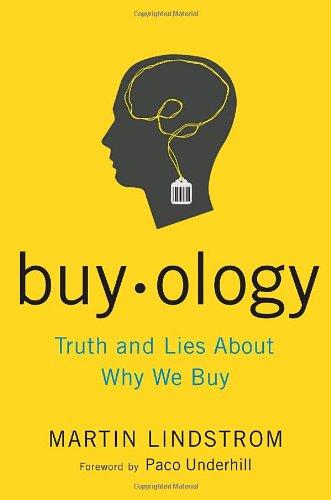
Buyology
by
Martin Lindstrom
Published 14 Jul 2008
He sued Warner Brothers, and the filmmakers, claiming that the subliminal images of a demon’s face flashed throughout the movie had caused him to pass out.4 And in 1999, some viewers accused the makers of the film Fight Club of subliminal manipulation, claiming they had planted pornographic images of Brad Pitt in the movie in a deliberate attempt, according to one Web site, to enhance the film’s “anti-work message and revolutionary tone.” Accusations of subliminal manipulation have been leveled at musicians from Led Zeppelin (play “Stairway to Heaven” backward and you’ll supposedly hear “Oh, here’s to my sweet Satan”) to Queen (“Another One Bites the Dust” played backward allegedly yields “It’s fun to smoke marijuana”).

The Road to Wigan Pier
by
George Orwell
Published 17 Oct 1972
All are being robbed and bullied by the same system. Yet how many of them realise it? When the pinch came nearly all of them would side with their oppressors and against those who ought to be their allies. It is quite easy to imagine a middle class crushed down to the worst depths of poverty and still remaining bitterly anti-working class in sentiment; this being, of course, a ready-made Fascist Party. Obviously the Socialist movement has got to capture the exploited middle class before it is too late; above all it must capture the office-workers, who are so numerous and, if they knew how to combine, so powerful. Equally obviously it has so far failed to do so.
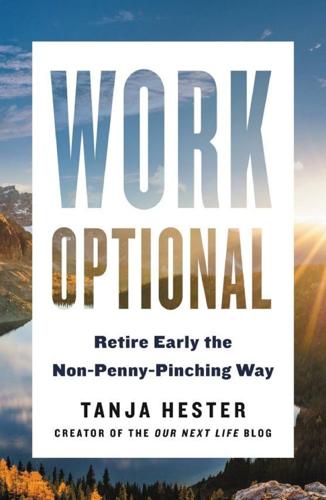
Work Optional: Retire Early the Non-Penny-Pinching Way
by
Tanja Hester
Published 12 Feb 2019
We’re so grateful to have realized that by approaching our money a little differently than most people do, we could reclaim our time and embark on the work-optional life of our dreams. If you’re willing to change your money mindset and occasionally go against what we’re all taught is the “right way” to do things, you can craft the life of your dreams, too. This book is not anti-work. Work is a good and noble thing, something nearly every person ever born has had to do in some form, whether or not they were formally employed. As humans we are wired to be productive, and work provides an outlet for that need. Work can give us a sense of purpose, a sense of contributing to society, and a sense of usefulness.
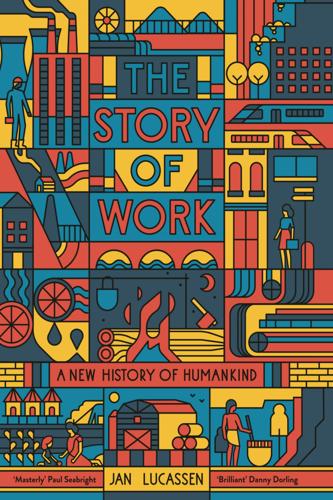
The Story of Work: A New History of Humankind
by
Jan Lucassen
Published 26 Jul 2021
If this is true for the birthplace of the Big Mac and Kentucky Fried Chicken, then we can safely apply this observation to the rest of the world and to human history as a whole.3 The problem with such universal definitions is that it is never entirely clear which human pursuits cannot be defined as labour. The Tillys explicitly exclude three types of activities from their definition: ‘purely destructive, expressive, or consumptive acts’.4 They regard purely destructive labour as anti-work, since it does not add use value, rather it deprives commodities of value. This would seem to exclude many or all of the activities of, say, soldiering, due to the undeniably destructive aspects of this profession; but military craftsmanship is work, however, not only because, in practice, daily barrack life is non-destructive, but also because the intention of much, if not all, conscious destruction is to add value to other commodities and services.5 By precluding pure expression and consumption, the Tillys are excluding those activities that, in principle, have no use value for anyone other than the producer himself.
…
Guendelsberger 2019; Greenhouse 2019; Jaffe 2021; and the sweating phenomenon (see pp. 329–31). 28. Ford 2017; Baldwin 2019; Garcia-Murillo & MacInnes 2019; cf. Benner 2002 and 2003; Suzman 2020, ch. 15. 29. Quotation in Sloman 2019, 69; Brynjolfsson & McAfee 2014; Livingston 2016. 30. Ford 2017, 167. 31. Cf. Deakin & Wilkinson 2005. 32. I am aware that this goes against the idea of ‘anti-work politics’ (Weeks 2011). 33. Arendt 1958, 107–8 (perhaps superfluously, the final sentence should not be interpreted as Christian self-sacrifice, but as a direct physical satisfaction resulting from the performance of an accomplishment). 34. Sennett 2008, 8, 287, 289. 35. Quoted by McBee 2019, 157; cf.
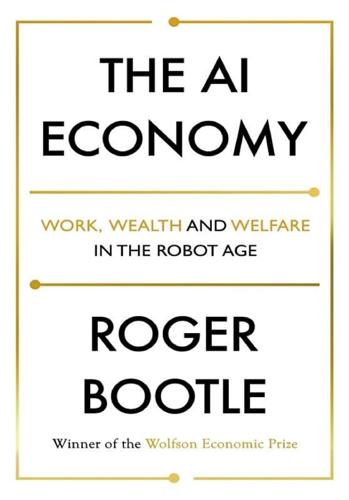
The AI Economy: Work, Wealth and Welfare in the Robot Age
by
Roger Bootle
Published 4 Sep 2019
Actually, for the USA there is a very simple economic explanation of why Keynes’s prophecy has not been fulfilled. Over recent decades, most workers’ wages have not increased. For American males in their thirties, median real wages were lower in 2004 than they had been in 1974.18 (The reasons for this are discussed in Chapter 6.) The anti-work preference We should not blithely accept at face value the “work is fun” explanation for continued long working hours that I discussed above. There is a serious risk of mistaking the fulfillment of some people at work for the experience of everybody. For many people, work isn’t always quite what it is cracked up to be.
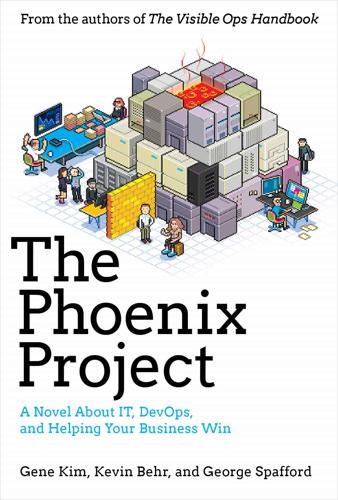
The Phoenix Project: A Novel About IT, DevOps, and Helping Your Business Win
by
Gene Kim
,
Kevin Behr
and
George Spafford
Published 14 Jul 2013
But it was only after the Phoenix fiasco that I saw the last one, because of how it prevented all other work from getting completed, and that’s the last category, isn’t it? Firefighting. Unplanned work.” “Precisely!” I hear Erik say. “You even used the term I like most for it: unplanned work. Firefighting is vividly descriptive, but ‘unplanned work’ is even better. It might even be better to call it ‘anti-work,’ since it further highlights its destructive and avoidable nature. “Unlike the other categories of work, unplanned work is recovery work, which almost always takes you away from your goals. That’s why it’s so important to know where your unplanned work is coming from.” I smile as he acknowledges my correct answer, and am oddly pleased that he validated my antimatter notion of unplanned work, as well.
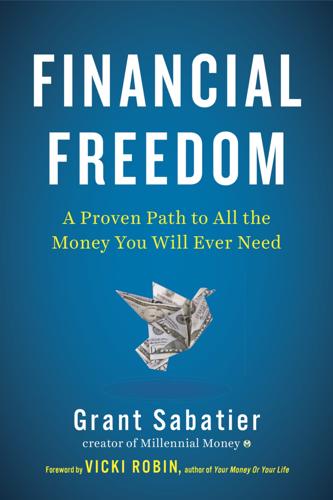
Financial Freedom: A Proven Path to All the Money You Will Ever Need
by
Grant Sabatier
Published 5 Feb 2019
This is why the average American watches 5.4 hours of TV a day. Sure, we have weekends, but how often do you spend those running around trying to catch up on all the errands and chores you didn’t get to during the week? The point is, you are trading the best hours of your week and your life for a paycheck. I’m not anti-work; in fact, I like working. Humans need to work to be happy. But like time, not all work is created equal. There is a huge difference between working at a job you hate, being stuck at a desk or on the clock for forty or more hours a week, and doing work you love and are passionate about, on your own time, and having the freedom to do something else if you want to.
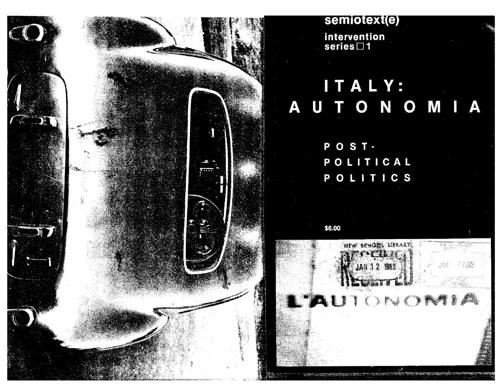
Autonomia: Post-Political Politics 2007
by
Sylvere Lotringer, Christian Marazzi
Published 2 Aug 2005
They compialn, in other words, that the prospect of jabs that dIffer from factory work is not a sufficient incentive to productive labour, but rather acts as a signpost towards receipt of income in the sphere of circulation, towards the world of revenue (money as money, removed from the cIrcuit of productive capital). At this point the Whole "party system" joins in the great debate on the reproduction of classes in Italy, its distortions, imbalances etc., the general conclusion being that it is not sufficient to reprodUce a lower-to-middle bourgeoIsie in an anti-working class rOie, if this then becomes an unproductive class in receipt of revenue! Andso the scapegoat mythOlogy of "Hunt the Parasite" - the Iynchpin of the c:isis ideology - comes to the fore. Backed by the "scientific" revelations of Sylos Labini, GOfferi, etc, this game now starts In earnast. A sort of vague eg,alitarlanlsm emerges, which scrutinises the income of the clerical worker the student and the tertiary worker, and says nothing, for example, about the tr~nsfor. .matlon of capltal-which.ls-product!

Peggy Seeger
by
Jean R. Freedman
He admits, “Delivering those monologues with Joan sitting about three feet away was one of the scariest things I've ever done.”27 She joined the cast members for a meal afterward. Sandra Kerr, from a working-class family in the East End of London, was disappointed by the formerly radical Littlewood. Kerr explained, “The comments she made about people in the East End of London I found quite anti-working class, and I got angry when she talked about schoolchildren there being completely out of control…. Ewan said afterwards to me that he particularly wanted me to see how reactionary Joan had become.”28 The success of the 1970–71 Festival of Fools gave Ewan hope that he could once again build a workers’ theater like the ones he had known in his youth.

The Victorian City: Everyday Life in Dickens' London
by
Judith Flanders
Published 14 Oct 2012
In 1831, an American tourist noticed a funeral procession in the yard of Westminster Abbey. There were just seven official mourners, but, he was happy to see, they were trailed by ‘a respectful multitude’ of strangers. in 1847, the 3rd Duke of Northumberland died. He had attempted to wreck the Slave Trade Abolition Bill, was vehemently anti-Catholic and anti-working-class, as well as being considered rather stupid and extremely arrogant by the public and his peers alike. Yet ‘crowds of persons’ lined the streets to watch his funeral procession travel from Northumberland House to Westminster Abbey. It was after the mass orgy of ostentatious ceremonial that was the Duke of Wellington’s funeral in 1852 (see pp. 335–46) that funerals of the great, the good and the not-so-good became for the most part quieter events, with less public participation.

Before the Storm: Barry Goldwater and the Unmaking of the American Consensus
by
Rick Perlstein
Published 17 Mar 2009
Their entreaties came to grief. The would-be professor of Christian ethics liked to play rough. “We have a few more Goldwater ads,” Moyers promised the President shortly after the “Daisy” spot ran, “and then we go to the pro-Johnson, pro-Peace, Prosperity, Preparedness spots.” But they never really got to them. Anti worked too well. “Right now, the biggest asset we have is Goldwater’s alleged instability in re atom and hydrogen bombs,” as Jack Valenti put it. “We must not let this slip away.” Moyers was instrumental in pioneering an innovation in presidential campaigning: the full-time espionage, sabotage, and mudslinging unit.
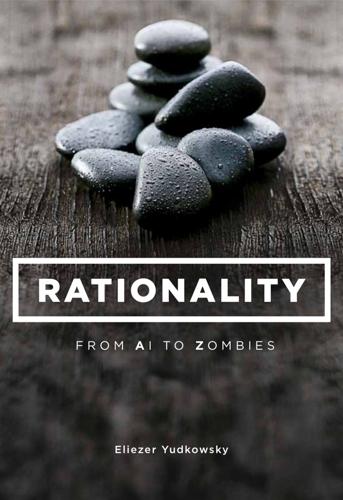
Rationality: From AI to Zombies
by
Eliezer Yudkowsky
Published 11 Mar 2015
As discussed in Perpetual Motion Beliefs, faith and type 2 perpetual motion machines (water → ice cubes + electricity) have in common that they purport to manufacture improbability from nowhere, whether the improbability of water forming ice cubes or the improbability of arriving at correct beliefs without observation. Sometimes most of the anti-work involved in manufacturing this improbability is getting us to pay attention to an unwarranted belief—thinking on it, dwelling on it. In large answer spaces, attention without evidence is more than halfway to belief without evidence. Someone who spends all day thinking about whether the Trinity does or does not exist, rather than Allah or Thor or the Flying Spaghetti Monster, is more than halfway to Christianity.